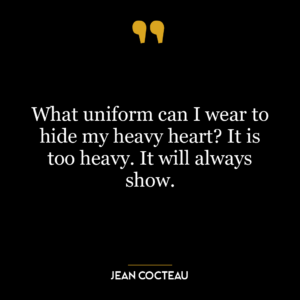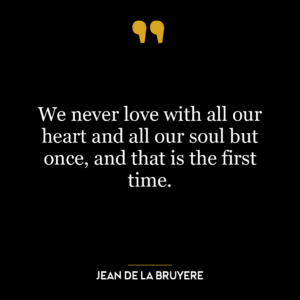This quote speaks to the difference between emotional and intellectual responses. The heart, representing our emotional self, is spontaneous and fully present in the moment. It embraces experiences as they come, without reservation or judgment. On the other hand, the mind, representing our intellectual self, is analytical and cautious. It assesses situations, weighs pros and cons, and often holds back from fully engaging in the experience due to fear, doubt, or other considerations.
The quote suggests a dichotomy between these two responses, implying that while the heart is open and vulnerable, the mind is closed and defensive. It encourages us to lean into our emotional responses, to surrender to the moment instead of holding back out of fear or judgment.
In today’s fast-paced, highly analytical world, this quote can serve as a reminder to slow down and be present. We are often so caught up in planning for the future or analyzing the past that we forget to live in the present. By surrendering to the moment, we can experience life more fully and authentically.
In terms of personal development, this quote encourages emotional openness and vulnerability. In a society that often values logic and rationality over emotion, it can be easy to suppress our feelings and live primarily in our heads. However, emotional intelligence is just as important as intellectual intelligence, and being in touch with our feelings can lead to deeper connections with others and a more fulfilling life.
Furthermore, the quote can also be interpreted as a call for balance between the heart and the mind. While it’s important to be present and emotionally open, it’s equally important to use our minds to make informed decisions and protect ourselves from potential harm. Thus, personal development might involve learning to listen to both our hearts and our minds, and finding a balance between emotional openness and intellectual caution.







